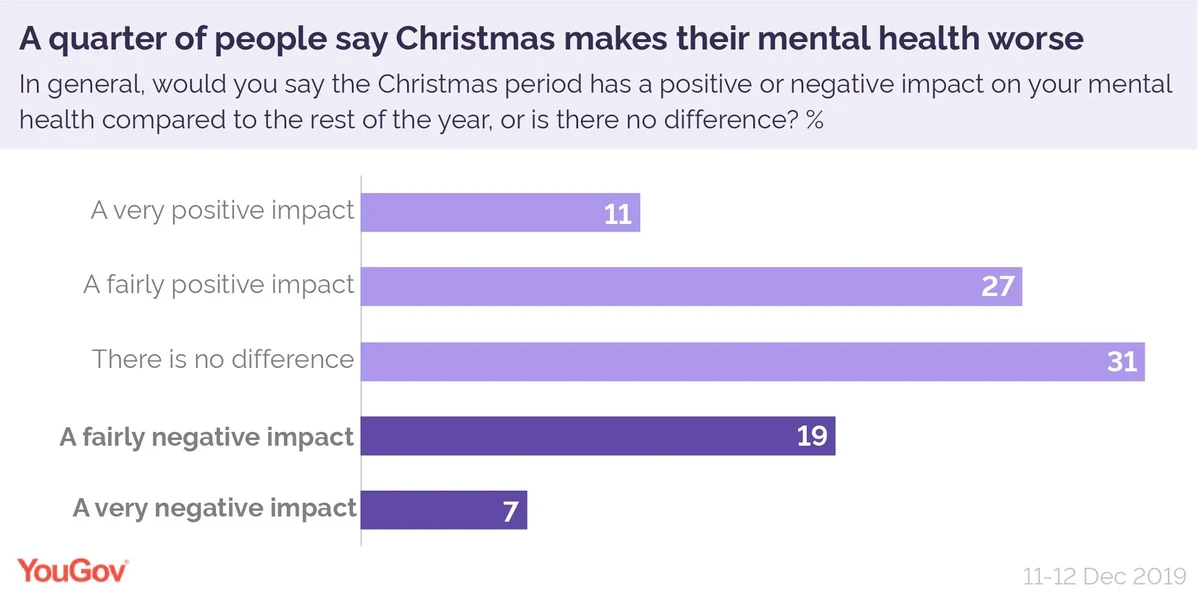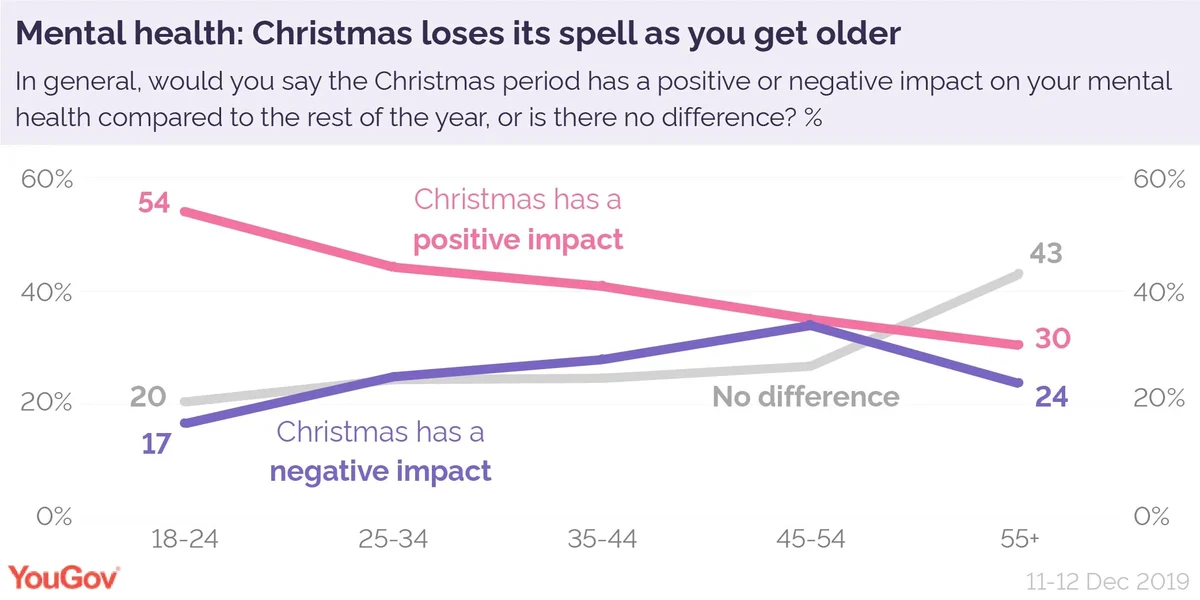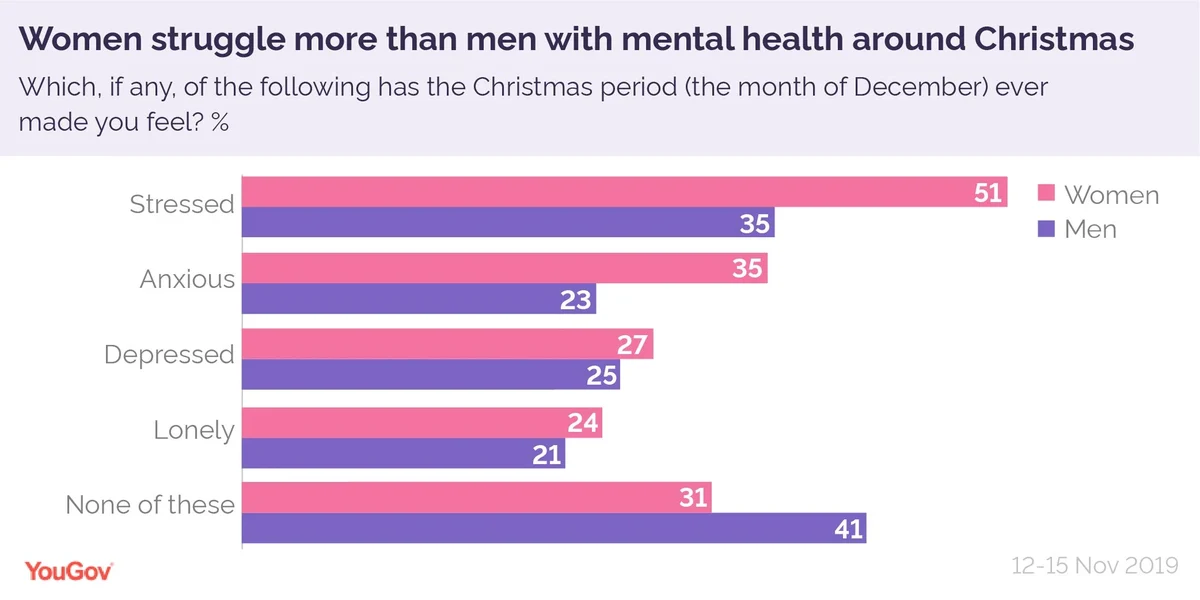Over two in five Brits have felt stressed during the festive season, while about one in four has struggled with anxiety or depression.
December is a happy time for most. Even as the days get shorter and the Christmas music starts to grate, two in five say their mental health improves during the holidays.
But a quarter of the population finds Christmas more challenging than the rest of the year. In fact, they say it has a fairly (19%) or very (7%) negative impact on their mental health.

Feeling low around Christmas is especially common among people who are unemployed (38%), divorced (35%) or widowed (31%). It’s less so, but not unusual, for parents with kids living at home (23%).
Younger people are more likely to find Christmas uplifting but the effect seems to tail off over time. Over half of 18 to 24 year olds say their mental health is better in December, compared to only three in ten who are aged 55 or older.
In fact, older people are simply less bothered about Christmas in general. Half of pensioners say it makes no difference to their mental health at all. In contrast, over a third of people aged between 45 and 54 feel worse over the festive season.

Feeling stressed in December is common, with more than two in five saying people saying they’ve experienced it. Anxiety has affected three in ten, while a quarter have felt depressed. And just under a quarter say they have been lonely.
Anxiety and loneliness are most prevalent among people who are aged from 25 to 34, at between 31% and 40%. People who are out of work also struggle more than other groups: 47% say they’ve felt stressed, 42% depressed and 39% anxious.
Children: the gifts that keep on giving (and taking)
Our figures also show that being a parent in December is a double-edged sword. Half of people with kids living at home have felt stressed, which is above the national average. But they more frequently say Christmas has a positive impact on their mental health (44%). And compared to the wider population, fewer have felt lonely (19%) or depressed (24%).
Christmas is especially tough on women’s mental health. While women are only four percent more likely to say Christmas affects them negatively, the difference is more glaring when it comes to stress and anxiety.
While only 35% of men have felt stressed around Christmas, for women the figure is 51%. Over a third of women also say they’ve felt anxious, whereas less than a quarter of men say the same. Perhaps a gentle reminder to give your wife or mum a hand this Christmas?







